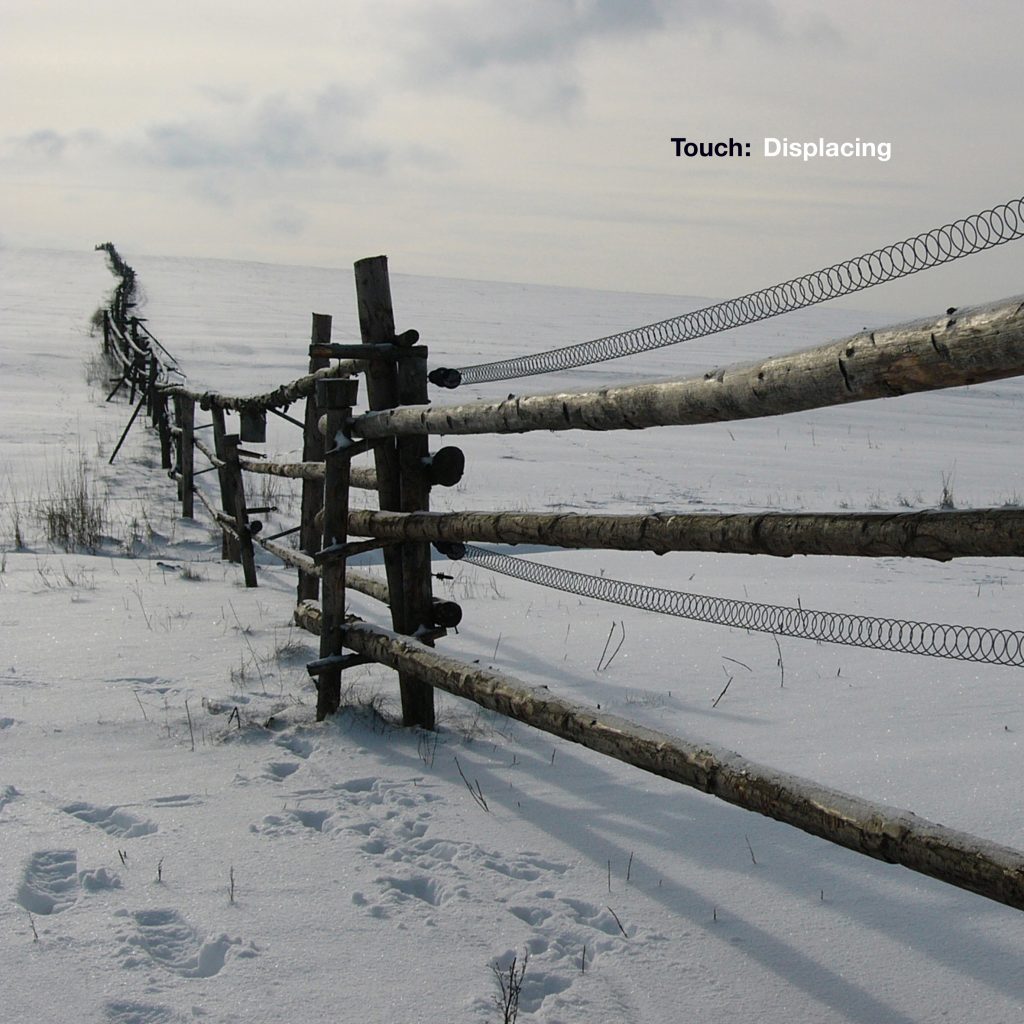
Following Touch: Isolation which covered the first lockdown period in the UK, Touch: Displacing is a new subscription project where the focus falls on longer-form compositions, to be released on a monthly basis over the coming year and featuring artists for whom duration is a key feature of their work.
Twelve new and exclusive tracks recorded by Touch or Touch-affiliated artists for one year’s subscription, with contributions from Oren Ambarchi, Olivia Block, Richard Chartier, Robert Crouch, Ipek Gorgun, Bana Haffar, Philip Jeck, Bethan Kellough, Carl Stone, Chris Watson and others, leading with “Kharabat” by Sohrab (you can listen to an extract here) – all mastered by Denis Blackham, to whom once again grateful thanks are due. Receipts will, as with Touch: Isolation [the collection is still available], be shared amongst the artists. A time to support independent music while it still exists!
Each of the releases will be mirrored by a cover/counterpoint by Jon Wozencroft – not fixed to one location, as they were with Touch: Isolation.
Touch: Displacing is necessarily a global action. Everybody knows of the water crisis facing the planet. Few may be aware that we are running out of sand, with equally dire consequences, owing to the demand for concrete…
In the current state of the world, the process of displacement has been accelerated by politicians whose techniques of disinformation, U-turning and barefaced lies scramble any attempt to form a perspective on the events taking place. In the physical realm, the fracture of once stable glaciers, the erosion of coastlines and the constant stream of migration from one state of upheaval to another consolidates the force of digital systems to amplify a maelstrom of change – but not change as we know it, rather the consolidation of power and vested interests that have seized this opportunity to raze the roof on previous systems of protection and stability.
The advent of the personal computer in the late 1980s was mirrored by the promotion of a new way of coming to terms with the scale of the world as we knew it, though chaos theory, fractal geometry and the idea that the most delicate of actions could have massive consequences – the saying went, that a butterfly flapping its wings in Japan could create a storm front across the Midwest of the USA.
Chaos theory is now chaos practice, with the caveat that initial actions are no longer born of delicacy nor collective expansion but the non-stop displacing of any position of longer term vision.
Displacement theory has its roots in psychology to denote the process of shifting one state of perception to another, in an unconscious and generally automatic form of behaviour – shifting the blame, “taking it out on someone” and on a greater scale, highlighted by the rise of nationalism and the growing intolerance of detail.
“The devil is in the detail”. The “Beauty of Fractals” made it clear that the smallest element was intrinsic to the harmony of the whole*. Instead, the world seems to have finessed the promotion of disharmony as a form of entertainment, at the very time when artistic, musical, cultural challenges to the perceived “fait accompli” are needed more than ever. To counter the policies of rapid confusion, the forward/reverse procedure, we shall endeavour to slow down the pace, turn things up and respond.
The subscription costs £33 for twelve tracks – please support the artists by investing in the Touch: Displacing project, and expect surprises – good ones for a change.
* “The Beauty of Fractals”, Heinz-Otto Peitgen and Peter Richter, Springer-Verlag, Heidelberg 1986










